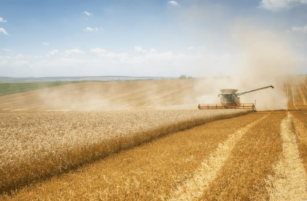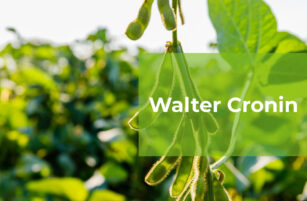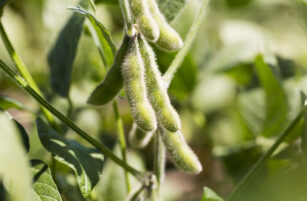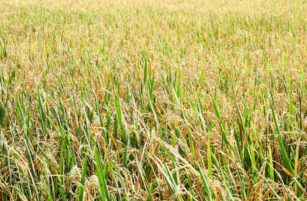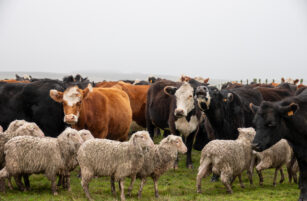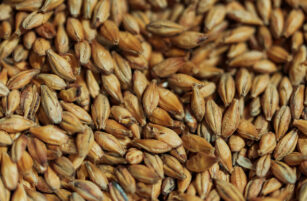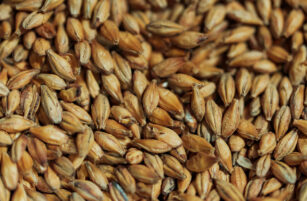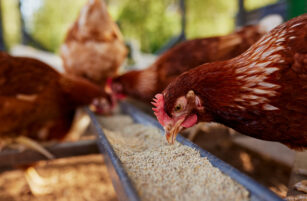Insight Focus
- Agricultural trading companies flourish in Q1.
- Food producers, retailers worry about inflation, margins.
- Indonesian causes confusion, market turmoil with palm oil export ban.
The disruption to commodity supply chains caused by Russia’s invasion of Ukraine as well as the lingering effects of COVID have started to feed into corporate results and outlooks.
Trading Companies Boom
US-based agricultural origination and processing company, Archer-Daniels-Midland, reported that its first-quarter earnings jumped 53% on the year to USD 1.05 billion, which it attributed to growing demand and tight supply. “Looking forward, we expect reduced crop supplies – caused by the weak Canadian canola crop, the short South American crops, and now the disruptions in the Black Sea region – to drive continued tightness in global grain markets for the next few years.” CEO Juan Luciano said in the earnings statement.
Peer company, Bunge, posted higher than expected Q1 earnings. Its adjusted earnings per share (EPS) rose to USD 4.26 from USD3.13 a year earlier. The company also raised its forecast for its 2022 EPS by 22% to at least USD 11.50 a share. Reuters quoted CEO, Greg Heckman, as saying of the conflict in Ukraine that “there will be a long tail on this because there is infrastructure that has been damaged. There are seaborne logistics that have to be untangled. There are waters that need to be de-mined”.
Food Producers, Retailers Eye Inflation
Snack producer Mondelez’s Q1 earnings were also higher on the year. They grew 7.3% to USD 7.8 billion, driven by volume growth and higher pricing. However, it flagged that its net revenue would take a USD 200 million hit from the closure of its Ukrainian business. “We expect elevated levels of input cost inflation to continue through the remainder of the year, and we will continue to take necessary actions to offset this dynamic,” Chairman and CEO, Dirk Van de Put, said in the earnings statement.

Packaged food maker, KraftHeinz, experienced higher volumes and pricing too in Q1, with organic net sales growing 6.8% and prices up 9.0 percentage points from a year earlier. The company raised its expectations for 2022 organic net sales growth to a mid-single-digit percentage increase from 2021, reflecting strong performance to date, ongoing business momentum, and additional pricing actions to mitigate inflation.

In Mexico, breadmaker Grupo Bimbo’s first-quarter net profit rose, boosted by strong sales, but higher raw material costs cut into its margins, Reuters reported. Bimbo also said it was eyeing price increases to offset spiking supplier costs, especially in Mexico, where its executives have had preliminary talks with the government about bread prices, Reuters quoted CEO, Daniel Servitje, as saying on a conference call with analysts.

Across the Atlantic, Anglo-Dutch consumer goods company, Unilever, now expects full-year underlying sales growth to be towards the top end of its 4.5-6.5% guidance range, but the full-year underlying operating margin towards the bottom end of its 16-17% range. “This period of unprecedented inflation requires us to take further pricing action with some impact on volume as a result,” the company said.
Associated British Foods’ sales rose 6% to GBP 4.34 billion (USD 5.45 billion) but its adjusted operating profit fell 9% to GBP 330m because, it said, cost reduction and pricing action were taken but there was lag in recovery of cost inflation. However, it said its sugar business’ sales and profits were well ahead of forecasts.
UK supermarket chain, Sainsburys, said in its 2021/22 full-year earnings release: “We know just how much everyone is feeling the impact of inflation, which is why we are so determined to keep delivering the best value for customers. We have been able to drive more investment into lowering food prices funded by our comprehensive cost savings plans. As a result, we continue to inflate behind competitors on the products customers buy most often.” It forecast its underlying profit before tax would be between GBP 630 million and 690 million in in 2022/23, below the GBP 730 million posted in 2021/22.
Seed, Spray Demand Boosts Syngenta’s Earnings
Switzerland-based, Chinese-owned agrichemicals company Syngenta’s Q1 sales were 26% higher year on year at USD 8.9 billion as farmers bought seeds and sprays early to avoid potential supply challenges later on.

The Indian government has reacted to the rising cost of agricultural inputs by raising its subsidy for phosphatic and potash-based fertilisers to INR 609.4 billion (USD 7.96 billion) to September 2022 from INR 571.5 billion for the 12-month period ending March 31 to insulate farmers from higher global prices, Reuters quoted information and broadcasting minister Anurag Singh Thakur as saying.
In major fertiliser producer Russia, President Vladimir Putin ordered the quota mechanism for fertilizer exports to be extended through August 31, with the possibility of extending them on a quarterly basis if necessary, Interfax reported.
Indonesian Bans Palm Oil Exports to Cap Domestic Prices
Governments around the world are looking at ways to bolster food security as prices surge. Indonesia has turned its ban on cooking oil exports aimed at reining in domestic prices into a weapon of mass confusion. Indonesia is the world’s largest palm oil producer and exporter.

Chief economic minister, Airlangga Hartarto, said in a statement on April 26 that the government would ban exports of refined, bleached and deodorised palm olein from midnight on April 28 until prices of bulk cooking oil dropped to 14,000 IDR/litre (USD 0.98), Reuters reported. Senior government official, Musdhalifah Machmud, told Reuters it would, however, allow exports of crude palm oil (CPO) or other derivatives.
A day later, Hartarto announced the ban had been extended to CPO, Bloomberg reported. As a result, Malaysian palm oil futures leapt almost 10% and benchmark Chicago soyoil futures rose 4% to a record high.
President Joko Widodo was quoted by the official Antara news agency as saying the ban would be lifted as soon as domestic needs were met. “I ask for the awareness of the palm oil industry to meet domestic needs, prioritize the domestic (market) first, meet the needs of the people first,” he said.
North African Wheat Supply
Algeria has enough wheat reserves for eight months, President Abdelmadjid Tebboune said, the Asharq al-Awsat website reported.
In Egypt, the Ministry of Supply announced on Monday that, starting May 1, it would reverse its earlier decision to cut its supply of local wheat to municipal bakeries by 10%, Al-Ahram reported. It added that the to reduce bakeries’ the quota had been taken because of low demand during the Muslim holy month of Ramadan.
Kazakhstan Looks to Cut Sugar Imports
The government of Kazakhstan aims to raise sugar production sevenfold to 254k tonnes, and reduce sugar imports by 32%, the Kazinform news agency reported, without giving a timeline. It quoted Agriculture Minister Yerbol Karashukeyev as saying this would be done by measures including the expansion of the beet acreage to 38k from 14.5k hectares as well as better irrigation.
By contrast, India is grappling with record high sugar production. The state of Maharashtra is offering mills a transport subsidy of INR 5 (USD 0.07) a tonne per kilometre to crush surplus cane, The Times of India reported. It added that Maharashtra has been struggling to crush all available cane before the onset of the monsoon season in June, when rain makes transportation difficult. Normally, mills in the state end crushing in March with only a few still operating in April.
Speaking in the state earlier in the week, national Transport and Highways Minister Nitin Gadkari urged sugar mills owners to reduce their sugar production and increase that of ethanol, the Business Standard website reported.
Help for Ukrainian Exports
The main cause of the explosion in global grains and oilseed prices has been the inability of Ukraine to export via its Black Sea ports because of the Russian invasion.

However, the German government is planning a “grain lift” from Ukraine by rail together with the DB Cargo unit of national rail company Deutsche Bahn, Handelsblatt (in German), reported, quoting government sources. A Deutsche Bahn spokeswoman confirmed to the newspaper that plans were being made for this.
“As the junior minister with responsibility for rail I’m pushing for it to be possible to move those 20m tonnes of grain to avert a global food supply disaster,” Parliamentary Private Secretary at the Transport Ministry Michael Theurer, told Handelsblatt. He added that talks were being conducted on the scheme with Ukrainian Railways as well as those in neighouring countries. The industry is talking about 20,000 trains, Handelsblatt added.
The official Ukrainian news agency Ukrinform reported that Agriculture Minister Mykola Solskyi visited the Baltic republic of Latvia to discuss using its ports for his country’s exports.
Ukrainian Prime Minister Denys Shmyhal and his Romanian counterpart Nicolae Ciuca discussed the possibility of enlarging export and transit corridors through Romania and the use of the additional capacity of Romanian seaports. Interfax-Ukraine reported.
However, doubt was cast on the volumes which might be exported by a tweet from the UK’s Ministry of Defence that the 2022 Ukrainian grain harvest is likely to be 20% lower than 2021’s due to the reduction in sowing area caused by the conflict.
Both the EU and UK dropped tariffs and quotas on imports from Ukraine to help its economy.
“Removing tariffs on key Ukrainian exports including barley, honey, tinned tomatoes and poultry will help Ukrainian businesses and producers when they need it most,” the UK government said in a press release.
Other Insights That May Be of Interest…
Russian Food Self-Sufficiency: Reality or a Potemkin Village?
Will 2022 Be the Summer of Port Congestion?
Supply Chain Shocks Disturb Breakfast
‘New Normal Emerges for Supply Chains in the Americas
Fuel Price Hikes Spark Unrest & Food Insecurity
Explainers That May Be of Interest…


